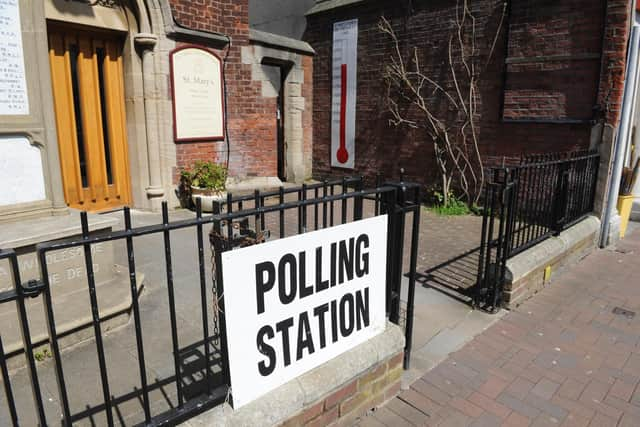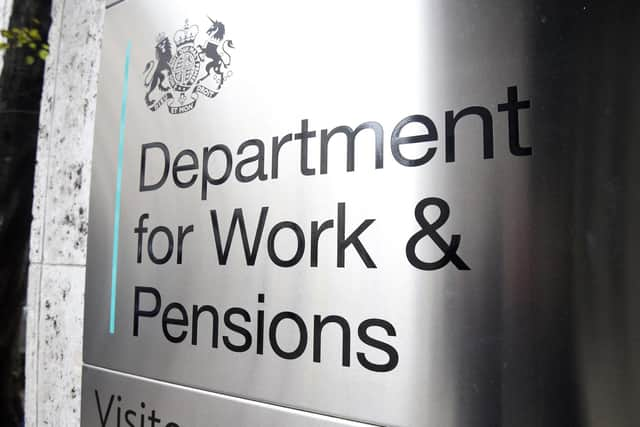New UK laws 2023: When will living wage, minimum wage, sick pay, pensions and universal credit go up? List of new regulations
and live on Freeview channel 276
Residents in Portsmouth and across the UK have welcomed 2023, and the new year will see many changes. Many of the new regulations coming into force will be geared around supporting the most vulnerable.
Many payments, including the national living wage, sick pay, universal credit and pensions, will increase to try and combat rampant inflation. There will also be other changes which will affect citizens’ daily lives.
NOW READ: Bank Holidays UK 2023: Full list of dates including extra day for King Charles III coronation


Advertisement
Hide AdAdvertisement
Hide AdHere is a list of the fresh regulations which are coming into force.
Increase in wages – including the National Living Wage and minimum wage
From April 2023, the National Living Wage (NLW) will rise to £10.42 an hour. All employees aged 23 and over qualify for the NLW.
It will be a legal requirement for all UK employers to pay their workers this new rate – as long as they fit in the age bracket – from April 1. Workers under 23 will also see different minimum wage levels.


The new rates include a minimum of £10.18 per hour for 21- to 22-year-olds, £7.49 per hour for 18- to 20-year-olds, £5.28 for 16- to 17-year-olds and £5.28 for apprentices.
Increases in statutory sick pay, maternity pay and paternity pay
Advertisement
Hide AdAdvertisement
Hide AdSeveral government payments will increase in the new financial year between April 2023 and 2024. Statutory sick pay will rise from £99.35 per week to £109.40 per week.
The 'standard rate' for maternity allowance/statutory maternity pay and paternity pay is also set to increase. It will rise from £156.66 per week to £172.48 per week.


Benefit and pension increases
It was confirmed by the Department for Work and Pensions (DWP) that benefits will rise in line with the consumer price index (CPI) from April 2023. This was announced by chancellor Jeremy Hunt in his autumn statement on November 17.
The increase will be alongside the CPI of 10.1 per cent which is taken from the figure from September. This will include benefits such as working tax credit, child benefit, child tax credit, universal credit, attendance allowance and PIP.
Advertisement
Hide AdAdvertisement
Hide AdMr Hunt also announced in the statement the tripe lock for pensions will stay in place. This was suspended during the pandemic.
The triple lock means pensions will rise in line with inflation at 10.1 per cent from April.
Energy bill support extension
The energy price cap will remain in place in 2023. It will be kept in place from April until the following year.
This cap will increase from £2,500 to £3,000. This benefit will equate to an average of £500 support for households in 2023-24., with energy costs expected to remain elevated throughout this year.
Advertisement
Hide AdAdvertisement
Hide AdOver eight million households on means-tested benefits will be granted a a cost of living payment of £900 in instalments. Pensioners will also receive £300, and those on disability benefits will be given £150. The date of these payments are yet to be confirmed.
Tax rises
The threshold for paying the top 45 per cent tax rate will be lowered from £150,000 to £125,140 in April. Jeremy Hunt announced the 40 per cent tax threshold will be frozen until 2028.
This means more people will pay the higher rate of tax in the coming years as wages rise. The 20 per cent threshold will be frozen.
Voter ID requirement
As of May 2023, voters will need to show valid ID to receive a ballot paper. This is under the new Elections Act 2022.
Advertisement
Hide AdAdvertisement
Hide AdThe government said the law is designed to prevent people from having their vote stolen. Valid documents include Passports, photographic driving licences, biometric immigration documents and some concessionary travel passes.
People who do not have those can access a new free voter document.
Fire safety regulations for landlords
New fire safety regulations will come into force from January. It will cover high-rise buildings, including those which are seven-storeys tall with communal areas.
It also covers buildings with two or more domestic premises and communal areas. Every property must have a ‘responsible person’ – which can be a letting agent – who has to deploy fire safety instructions prominently in communal areas and provide a copy of instructions to all residents within the building within 12 months of the start of regulations. The new regulations also cover fire doors.
Online safety bill
Advertisement
Hide AdAdvertisement
Hide AdThis bill is expected to pass through parliament and come into force in early 2023. It sets out to address illegal and harmful online content.
This will cover a broad range of online service providers, including social media platforms such as Twitter and Tiktok, and any business which provides an online services for user content sharing or storage.
Council tax rises
Council tax is set to rise by five per cent instead of three per cent this year. The Office for Budget Responsibility watchdog said: ‘This change is expected to yield £4.8billion a year by 2027-28, equivalent to increasing the average Band D council tax bill in England by around £250 (11 per cent) in that year.’
New number plates
New number plates will be introduced in March and September. From the spring you will see vehicles with the ‘23’ registration plate on the roads, while later in the year ‘73’ plates will be issued.
Fuel duty rate changes
Advertisement
Hide AdAdvertisement
Hide AdIn March last year, fuel duty rates were reduced by 5p per litre for 12 months. It was brought in as a ‘temporary measure’ and will be cut short.
Jeremy Hunt failed to address the issue in his Autumn Statement, but the Office for Budget Responsibility suggested it could rise by 12p.
HGV levy payments
All HGVs which weigh over 12 tonnes will be required to pay a levy to cover damage to road surfaces. This change will come into force in August.
Legislation was initially imposed in 2014 but was suspended during the pandemic due to driver shortages and cost related problems.